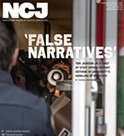[
{
"name": "Top Stories Video Pair",
"insertPoint": "7",
"component": "17087298",
"parentWrapperClass": "fdn-ads-inline-content-block",
"requiredCountToDisplay": "1"
}
]
"They're both bonkers!" — Stanley Wells, Britain's leading Shakespeare expert, on the opinion of preeminent Shakespearean actors Sirs Derek Jacobi and Mark Rylance, that the Stratford man didn't write the Shakespeare canon.
Last week, I noted that the traditional "Stratfordian" belief that a wool merchant from Stratford-on-Avon in England was the author of the Shakespeare canon has serious flaws. Let's look at some. These include:
Signatures: We have just six examples of the Stratford man's signature. Could someone who could barely write his own name have penned nearly a million words?
The will: The Stratford man's will (in which he famously bequeathed his second-best bed to his wife), while giving detailed instructions for the distribution of his assets, make no mention of unpublished plays, poems, books, manuscripts, maps — nothing that might be expected in the will of a prolific writer steeped in the knowledge of the day.
Erudition: Shakespeare really knew his stuff. The plays reference books in French and Italian that hadn't been translated into English at the time, while he wrote accurately about cities in Northern Italy. He knew contemporary French and Italian colloquialisms (three scenes of Henry V are entirely in French), his description of upper-class life mirrors someone intimately familiar with the courts of Elizabeth I and James I, and he knew the law (at least 50 books have been written on Shakespeare's legal proficiency). Not to mention his knowledge of astronomy, medicine, warfare, mythology, music, typography, geography and much more. How could a wool merchant from a provincial town have become so erudite?
The First Folio: Usually offered as prima facie proof of the Stratfordian's case. Published in 1623, seven years after the Stratford man's death, the First Folio of 36 Shakespeare plays is often cited as one of the most influential books ever printed. It refers to the author as "Sweet Swan of Avon," which, unfortunately for Stratford's true believers, isn't quite as cut and dried as it appears. Avon (Celtic for river) is the name of five other waterways in England besides the Stratford-upon-Avon one. It gets worse: Hampton Court, where many of Shakespeare's plays were performed for the royal court, was referred to as Avondunum ("river-castle"), or Avon for short. Nothing else in the First Folio comes close to equating the Stratford man with the playwright. In fact, it's suspiciously short on saying anything about the author beyond vague plaudits.
The Stratford Man's Documents: Researchers have found about 70 documents referencing the Stratford Shakespeare, most of which portray him in bad light — and none as a writer. He made a habit of suing his neighbors for small sums, he was listed as being delinquent in his tax payments, he was accused of hoarding grain during a famine and a restraining order was drawn up against him. All of which make him sound like a petty (and rather obnoxious) businessman. We do have records of him twice being paid as an actor but — tellingly — not as a writer. Theater impresario Philip Henslowe, who staged Shakespeare plays during the Elizabethan era, made payments to 27 playwrights but none to Shakespeare.
Shakespeare the feminist: "Shakespeare's sympathy with, and almost uncanny understanding of, women characters is one of the distinguishing features of his comedy, as opposed to that of his contemporaries," according to Shakespeare scholar Anne Barton. Take a look at such smart and witty characters as Portia (The Merchant of Venice), Rosalind (As You Like It), Viola (Twelfth Night), Beatrice (Much Ado About Nothing), Hermia (A Midsummer Night's Dream), Katherina (The Taming of the Shrew), etc. Were these the creations of a man who was indifferent to the literacy of his daughters? Or of a man at all?
Next week, I'll consider alternative candidates for Shakespeare the writer.
Barry Evans (he/him, [email protected]) is bemused by the theory that Shakespeare was a woman.
more from the author
-
Doubting Shakespeare, Part 3: Whodunnit?
- May 9, 2024
-
Doubting Shakespeare, Part 1: Stratfordians vs. anti-Stratfordians
- Apr 25, 2024
-
A Brief History of Dildos
- Apr 11, 2024
- More »
Latest in Field Notes
Readers also liked…
-
Trouble on the Line: The Reality Part 2
- Nov 3, 2022



































